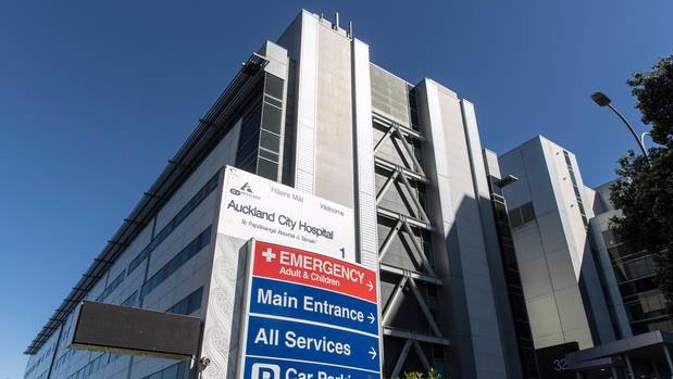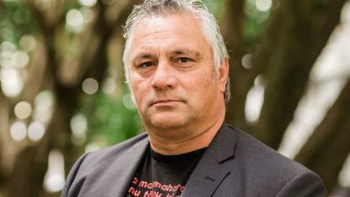
On two occasions in the past year, nurses at Auckland City Hospital have refused to provide routine treatment to patients because of allegedly harmful behaviour towards them, the Weekend Herald has learned.
In an extremely unusual step, the nurses issued “cessation of work” notices citing health and safety legislation that gives employees the right to refuse to carry out work they believe would expose them to imminent danger.
In both instances, nurses alleged that persistent conduct by a patient or caregiver created an elevated threat to their wellbeing that had not been resolved by management. They refused to provide anything but life-saving care to those patients until the hospital resolved their concerns.
People familiar with the incidents said nurses would only refuse to care for patients in extraordinary circumstances and after numerous attempts to address the conflict. It is thought that there have been only a handful of cases in which hospital staff in New Zealand have formally refused to provide routine care because of safety concerns.
These incidents are the sharp end, the sources said, of a wider problem of violence, harassment, abuse, aggression or intimidation against frontline medical workers, which is increasing at a time when hospital services are understaffed and overstretched.
In March, the Weekend Herald reported that there had been 22,876 incidents of violence and harassment against staff recorded by New Zealand health authorities in the past three financial years. Staff say these numbers understate the extent of the problem because they often do not have time to record incidents or do not feel that doing so will make a difference.
WorkSafe, the health and safety regulator, told the Weekend Herald it received a stop-work order lodged by Auckland City Hospital staff in July last year.
After investigating the matter, it issued an “improvement notice” to Te Whatu Ora, the national health service, and this was complied with in September, the regulator said.
A second stop-work order was referred to WorkSafe in June of this year.
WorkSafe said inspectors have met with the staff involved in that case and plan to soon speak to Auckland City Hospital’s health and safety team.
“WorkSafe will then assess the risk management and worker engagement processes that the hospital has in place,” a spokesperson said.
WorkSafe did not provide specific details about either case. Te Whatu Ora Te Toka Tumai Auckland, the local health authority that operates Auckland City Hospital, declined to discuss specifics because it would breach patient confidentiality.
/cloudfront-ap-southeast-2.images.arcpublishing.com/nzme/ICVD4WGLLCXRDQ6VRCYWXCFODA.jpg) Dr Mike Shepherd, the interim lead at Te Whatu Ora Te Toka Tumai Auckland, which operates Auckland City Hospital. Photo / Michael Craig
Dr Mike Shepherd, the interim lead at Te Whatu Ora Te Toka Tumai Auckland, which operates Auckland City Hospital. Photo / Michael Craig
In a statement, Dr Mike Shepherd, interim lead at Te Toka Tumai Auckland, said: “I am only aware of two instances where we have received a cessation of work notification related to staff health and safety concerns and on both occasions we have worked closely with our staff, WorkSafe and our union partners on these matters.
“We received an improvement notice from WorkSafe in one instance and put further measures in place in response to this.”
Shepherd says hospitals “can be stressful at times” and Te Toka Tumai Auckland is sympathetic to patients and whānau who are coping with challenging illnesses and injuries.
The hospital is also focused on the safety of its employees, Shepherd says, and has established processes for staff to escalate concerns and is implementing a “significant programme of work” to improve their wellbeing and safety.
Andrew Slater, Te Whatu Ora - Health New Zealand’s new chief people officer, told the Weekend Herald in an interview this week that rising violence and abuse against staff is a “critical risk” to the health service and reducing the risk of it happening is one of his top priorities.
Initiatives underway nationally to resolve the problem include identifying which services have good safety practices and implementing them in other places, and improving the design of some hospital facilities that are high risk.
“Our people are people too. They deserve to be able to come to work and to do their job safely and without fear of aggression and violence,” Slater says.
Among the services with the highest number of incidents of violence and aggression are mental health facilities and emergency departments, which often deal with people who are acutely distressed or under the influence of alcohol and drugs.
In October last year, nurses at North Shore Hospital issued a complaint which complained they often felt anxious and unsafe because their waiting room was crowded with patients who had been there for long periods and there were not enough nurses to assess them.
“It is perceived by the public that healthcare organisations will provide a safe and secure environment for staff, patients and visitors but in reality this is not happening,” the nurses said.
Violence and aggression have long been a part of the daily reality of emergency room staff, researchers say, which contributes to high rates of burnout. In many cases, that amounts to verbal abuse, threatening expressions, and inappropriate sexual remarks, but physical assaults also happen.
A survey in one emergency department found in 2021 that 70 per cent of nursing staff said they had experienced physical violence on the job, according to a recent article in the journal of the College of Emergency Nurses.
However, the scale is underreported because clinicians are overworked, cultured to believe that it comes with the job, or perceive that reporting incidents will make no difference, and because the reporting mechanisms are cumbersome and time-consuming.
Alex Spence is a senior investigative journalist based in Auckland. Before joining the Herald, he spent 17 years in London where he worked for The Times, Politico, and BuzzFeed News.
HELP US INVESTIGATE
The Herald will continue reporting on the impact of the staffing crisis in New Zealand’s hospitals and we need your help. Do you have information on this topic? Have you or someone you know missed out on treatment because of capacity problems? Are you a hospital employee working under difficult conditions? Do you have documents that can help us shed light on these issues?
We want to speak to as many people as possible who have experience in the system, to ensure our reporting is thorough and accurate. You can reach the Investigations Editor Alex Spence by email ([email protected]), secure Signal messaging (0272358834), or post (The New Zealand Herald, Private Bag 92198, Victoria St West, Auckland CBD 1142.) We can’t reply to all submissions because of the volume we receive. We will not publish your name or identify you as a source unless you want us to.
Take your Radio, Podcasts and Music with you









